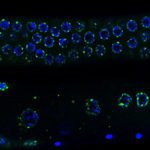Link to Pubmed [PMID] – 28993778
Front Immunol 2017;8:1189
Although conventional regulatory T cells (Tregs) are sufficient in controlling low residual T-cell activation in ART-treated patients, they are not efficient in controlling exaggerated immune activation associated with high levels of HIV replication in primary HIV infection (PHI). Our previous data suggested that double negative (DN) T cells including mainly γδ DN T cells play a role in the control of immune activation in PHI. Since γδ T cells are capable of exerting regulatory functions, we investigated their implication as Tregs in PHI as well as chronic HIV infection (CHI). In a cross-sectional study of 58 HIV-infected patients, in the primary and the chronic phase either ART-treated or untreated (UT), we analyzed phenotype and cytokine production of γδ T cells using flow cytometry. Cytokine production was assessed following stimulation with isopentenyl pyrophosphate or plate-bound anti-CD3/anti-CD28 monoclonal antibodies. We found that the proportion of γδ T cells negatively correlated with CD8 T-cell activation in PHI patients. Furthermore, we found that in these patients, the Vδ2 receptor bearing (Vδ2) γδ T cells were strongly activated, exhibited low terminal differentiation, and produced the anti-inflammatory cytokine, TGF-β. In contrast, in UT-CHI, we observed a remarkable expansion of γδ T cells, where the Vδ2 γδ T cells comprised of an elevated proportion of terminally differentiated cells producing high levels of IFN-γ but very low levels of TGF-β. We also found that this loss of regulatory feature of γδ T cells in CHI was a lasting impairment as we did not find recovery of TGF-β production even in ART-CHI patients successfully treated for more than 5 years. Our data therefore suggest that during the primary HIV infection, Vδ2 γδ T cells may act as Tregs controlling immune activation through production of TGF-β. However, in CHI, γδ T cells transform from an anti-inflammatory into pro-inflammatory cytokine profile and participate in sustenance of immune activation.

